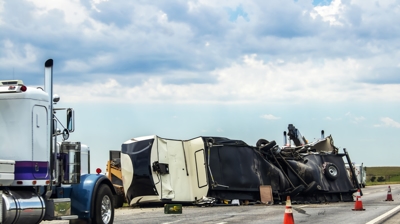Losing a loved one is one of the most difficult experiences a family can face. When someone else's negligence or wrongdoing causes a death, the pain can feel even more overwhelming. You might find yourself wondering if pursuing a wrongful death lawsuit is the right decision for your family.
What Is a Wrongful Death Lawsuit?
A wrongful death lawsuit is a legal claim filed when someone dies due to the negligence, recklessness, or intentional actions of another person or entity. These lawsuits are designed to provide compensation to the deceased person’s surviving family members and hold the responsible parties accountable.
Common situations that may lead to a wrongful death claim include:
- Car Accidents caused by reckless or intoxicated drivers.
- Medical Malpractice, such as misdiagnosis or surgical errors.
- Defective Products that cause fatal injuries.
- Workplace Accidents, especially in dangerous industries like construction.
- Criminal Acts, such as assault or manslaughter.
The primary goal of a wrongful death lawsuit is to ease some of the financial and emotional burden placed on families as a result of their loss. It’s not about placing a price on your loved one’s life but about seeking justice and holding negligent parties responsible.
Who Can File a Wrongful Death Lawsuit?
The laws regarding who can file a wrongful death lawsuit vary by state, but generally, the following people are eligible:
- Immediate Family Members: This includes spouses, children (including adopted children), and parents of minor children.
- Surviving Spouses: If the deceased was married, their spouse is usually the first in line to file a claim.
- Parents of Deceased Adults or Children: If the deceased was unmarried and without children, parents may have the right to file.
- Extended Family Members: Some states allow siblings, grandparents, or other close relatives to bring a wrongful death claim under specific circumstances.
- A Representative of the Estate: If none of the above individuals file a lawsuit, the executor (appointed in the deceased's will or by the court) can file on behalf of the estate.
If you’re unsure whether you’re eligible to file, consulting with a wrongful death attorney can clarify your rights and help you decide the best course of action.
What Damages Can Be Recovered in a Wrongful Death Claim?
A wrongful death lawsuit aims to provide compensation for a variety of losses experienced by the surviving family members. These damages typically fall into two categories:
1. Economic Damages
These are measurable financial losses caused by the death, such as:
- Medical Bills: If life-saving efforts or hospital care were provided before the death.
- Funeral and Burial Costs
- Loss of Financial Support: This includes the income the deceased would have contributed to the family over their lifetime.
- Loss of Benefits: Such as pensions, health insurance, or retirement contributions provided by the deceased.
2. Non-Economic Damages
These cover intangible losses that are just as real but harder to quantify:
- Loss of Companionship and Love: For spouses or children who lost a close relationship with the deceased.
- Pain and Suffering: The emotional distress caused by the untimely loss of a loved one.
- Loss of Guidance or Parental Support: For children who rely on their parent for care, advice, and nurturing.
Punitive Damages
Although less common, punitive damages may also be awarded. These serve to punish the responsible party when their behavior was exceptionally reckless or malicious.
The exact amount and type of damages depend on the specifics of your case and your state’s wrongful death laws. An attorney can help you understand what kinds of damages may be available to your family.
Is Pursuing a Wrongful Death Lawsuit Right for Your Family?
Deciding to file a wrongful death lawsuit is deeply personal and can depend on several factors. Here are some key questions to help you think it through:
1. Do You Have a Valid Case?
For a wrongful death lawsuit to be successful, you’ll need to prove three things:
- The negligence or wrongful actions of the defendant caused the death.
- The surviving family or estate has suffered losses (financial or emotional) because of the death.
- The claim has been filed within the state’s statute of limitations (often 2–3 years from the date of death).
2. How Are You Coping with the Emotional Toll?
Legal proceedings can sometimes be lengthy and emotionally taxing. Before moving forward, it’s important to consider whether your family can handle the added stress. A compassionate attorney can guide you through this process with sensitivity.
3. What Are Your Financial Needs?
A wrongful death lawsuit can alleviate financial stress by providing compensation for funeral expenses, lost income, and other costs. If your family is struggling to cover these, pursuing a claim might be the right choice.
4. Can You Honor Your Loved One’s Legacy?
Some families find a sense of closure in holding the responsible party accountable. A lawsuit can also protect other families from experiencing similar tragedies and highlight preventable issues.
5. Do You Have Legal Support?
Navigating a wrongful death claim on your own is challenging, especially when dealing with insurance companies or corporations. An experienced personal injury lawyer can handle the legal complexities, giving you the time and space to focus on healing.
Next Steps for Your Family
If you believe a wrongful death lawsuit might be right for your family, here are steps to take:
- Gather Evidence: Collect any documents, photos, medical records, or police reports related to the incident.
- Consult an Attorney: Schedule a free consultation with a wrongful death lawyer to discuss your case and get informed legal advice.
- Focus on Self-Care: Grieving is difficult and takes time. Lean on trusted family members, friends, or support groups for emotional strength.
St. Louis Wrongful Death Lawyers
The law professionals at NGK Law Firm in St. Louis, Missouri are dedicated to guiding families through these sensitive decisions with candid advice and robust representation. Their localized expertise ensures that all statutory considerations and family needs are thoroughly assessed, facilitating informed, empathetic, and strategic advocacy. Families contemplating legal action are encouraged to reach out to us at (314) 350-1900 for comprehensive counsel and support in their time of need.







